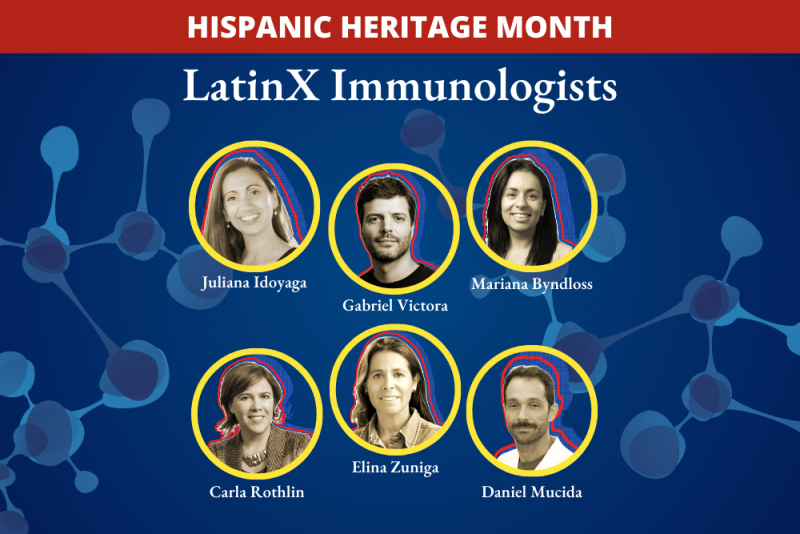
A new generation of LatinX immunologists is making significant contributions to the field. These scientists bring a strong foundation in studying the immune system. Their work reflects a deep commitment to basic research and addressing diseases. Through collaborative efforts and interdisciplinary approaches, these immunologists are helping to advance our understanding of immune responses, from vaccine development to autoimmune disorders, making meaningful contributions to the broader scientific community.
Take a moment to explore this list of inspiring LatinX scientists put together by the Fred Hutch Cancer Center.
The group of investigators is long! But this month, we particularly want to highlight the following inspiring immunologists:
Carla V. Rothlin is an Argentinian immunologist and professor of immunobiology and pharmacology at Yale University, where she holds the Dorys McConnell Duberg Professorship. She co-leads the Cancer Immunology Program at Yale Cancer Center and is a Howard Hughes Medical Investigator Faculty Scholar. Rothlin’s research focuses on immune homeostasis, wound repair, and inflammation regulation, particularly through TAM receptor tyrosine kinases. She is also a co-founder of Global Immunotalks, a virtual lecture series on immunological research launched in 2020.
Daniel Mucida completed his PhD at the University of São Paulo and New York University in 2005. After postdoctoral work at the La Jolla Institute, he joined Rockefeller University in 2010 and became a tenured professor in 2021. His research focuses on how the intestinal mucosal immune system generates responses while maintaining tolerance to harmless antigens. Mucida has received several awards, including the NIH Director’s Transformative Research Award and the Young Investigator Award from the Society for Mucosal Immunology.
Gabriel Victora earned his PhD in 2011 from New York University Medical School. From 2012 to 2016, he was a fellow at the Whitehead Institute for Biomedical Research at the Massachusetts Institute of Technology. In 2012, he earned the NIH Director's Early Independence Award for his work using two-photon microscopy to understand the changes over time of the level of diversity of antibodies in germinal centers. In 2018, he was given the NIH Director's Pioneer Award.
Juliana Idoyaga is an Assistant Professor of Microbiology and Immunology at Stanford University. She researches dendritic cell biology and its therapeutic applications. She is also dedicated to promoting diversity, equity, and inclusion in STEM and supporting the career development of students and trainees. Dr. Idoyaga has received several honors, including the NIH Director’s New Innovator Award and the Baxter Foundation Faculty Scholar Award.
Elina Zúñiga is an Argentinian immunologist and Professor of Molecular Biology at the University of California, San Diego. She has made significant discoveries on host-virus interactions in acute and chronic infections, using models like lymphocytic choriomeningitis and murine cytomegalovirus to study immune adaptations and viral suppression. Her work aims to identify new methods and targets for antiviral defense. In 2018, she delivered the American Association of Immunologists' Vanguard Lecture and co-founded Global Immunotalks, a global platform for sharing cutting-edge immunology research.
Mariana Byndloss is a native of Brazil. She earned her DVM and MSc in Veterinary Pathology from Universidade Federal de Minas Gerais (UFMG) in Brazil. Her doctoral work at UFMG and UC Davis was awarded the Brazilian National Prize for best PhD thesis in Veterinary Medicine. She performed her postdoctoral training in Dr. Andreas Bäumler’s laboratory at UC Davis, where she studied the link between ER stress and innate immunity and the interactions between the host and intestinal microbiota during dysbiosis. Mariana’s current work examines the mechanisms by which inflammation mediates changes in host physiology that, by disrupting the microbial ecosystem in our large intestine, lead to disease.